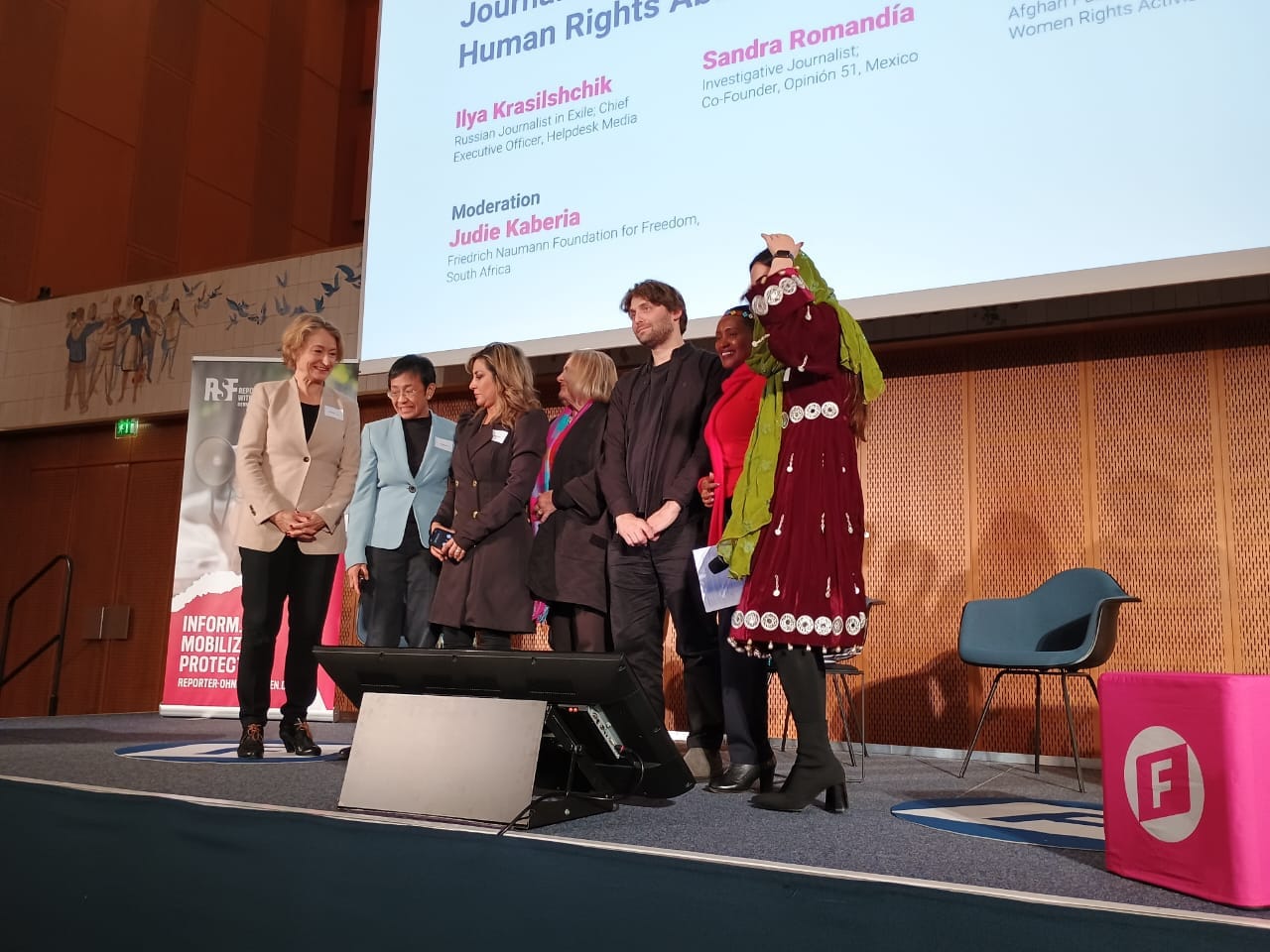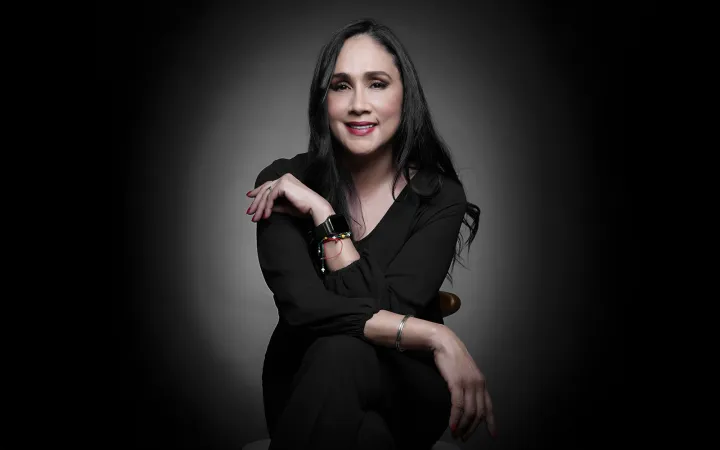
Por Sandra Romandía

Inmersos en un país de víctimas, en el que la sombra de la tortura por parte del Estado mexicano persiste en manos de sus agentes de las fuerzas armadas, es inconcebible pensar que aquellos que han sufrido esta brutalidad se conviertan, una vez más, en blanco de la misma entidad que debería velar por su seguridad. Por difícil que se lea, es así.
La semana pasada tuve la oportunidad de asistir a Berlín, Alemania, al evento anual de la Friedrich Naumann Foundation sobre Defensores de Derechos Humanos al que fui invitada para conversar sobre el caso México y mi experiencia como periodista enfocada a revelar historias de las víctimas, historias que de otro modo podrían no haber sido nunca conocidas. Compartí el evento con ponentes como la Premio Nobel de la Paz, la periodista filipina María Ressa; el periodista ruso Ilia Krasilshchik y la activista afgana Wazhma Tokhi.
Varios coincidimos en la preocupación de vivir en un país en el que no hay garantías para hacer la labor periodística, en la que el gobierno intenta desvirtuar la realidad y desacreditar la información de los medios de comunicación serios, y la importancia de seguir luchando desde nuestra trinchera para denunciar los casos de violaciones de derechos humanos.

Ahí expliqué que justo ese día, ese jueves 8 de diciembre, decidí publicar junto con mis compañeros Miguel Ángel Tepozteco y Áxel Chávez el reportaje Sedena infiltró a militar como falsa periodista para espiar a víctima de tortura, una investigación en la que trabajamos durante seis meses para comprobar cómo una chica de nombre Londy Paola Farfán (que se hacía pasar por el nombre de Mía) fingió ser una reportera de varios medios que no existían para estar cerca de Óscar Kabata, un joven que fue torturado por el general Felipe Jesús Espitia hace 14 años.
La infiltración fue más allá de la simulación periodística. Mía Rodríguez, en realidad Londy Paola, manipuló su identidad para obtener información confidencial de las víctimas. Desde la Cámara de Diputados hasta la entrega de ropa en manifestaciones, la falsa reportera recopiló datos sensibles bajo el pretexto de documentar para un supuesto documental; lo buscaba insistentemente para saber su itinerario de protestas; lo acompañó en los plantones y hasta se hizo su supuesta amiga. Un día simplemente desapareció y lo bloqueó de los teléfonos y redes sociales. El resto de la historia, de cómo comprobamos lo que ella hizo y cómo reportaba su espionaje pueden leerlo en el reportaje publicado en esta liga. Pero lo que puedo contar aquí es que fue un camino de sorpresa tras sorpresa, ninguna agradable.
Quiero enfatizar en que ante las amenazas que recibí por parte de terceros y de parte de altos mandos de la Secretaría de la Defensa Nacional (Sedena) de no continuar investigando el caso, fue que decidí esperar a estar en Europa para que saliera la publicación del caso; si bien mis compañeros han seguido los protocolos de cuidado, yo fui desde el principio de la investigación ubicada y advertida del peligro que representaba publicar.
Es increíble que en un país que se dice democrático estas prácticas continúen, tanto las de espionaje como las de amenazas, y que los reporteros que documentamos casos de violaciones a derechos humanos vivamos bajo acecho. Es increíble ver cómo al estar sentada con colegas de Afganistán, Filipinas, Rusia y otros países me doy cuenta que lo que pasa en México, una nación que supuestamente había avanzado en temas de estado de derecho y justicia, esté en los discursos sobre represión y falta de garantías para ejercer nuestro oficio.
"Los políticos y los tomadores de decisiones deben preguntarse si las medidas nacionales e internacionales existentes son suficientes para proteger la integridad de los periodistas. ¿Cómo deberíamos cooperar para proteger a los periodistas y garantizar el derecho a la libertad de opinión?", se preguntó la liberal alemana Sabine Leutheusser-Schnarrenberger. Porque sí, el próximo año será decisivo no sólo en México sino en muchas partes del mundo y cito a la Premio Nobel de la Paz, la periodista filipina María Ressa, "El 2024 será crítico... una de cada tres personas en el mundo votará; será un punto de inflexión para determinar si la democracia sobrevivirá".
El caso de espionaje publicado, y la coincidencia de preocupaciones entre colegas de distintos países, nos cubre por un manto de incertidumbre persistente sobre cuántas más vidas están siendo manipuladas por aquellos que deberían salvaguardarlas, y cuántas amenazas más sobre quienes ejercemos el periodismo seguirán versando sobre una labor que busca el servicio y abonar a un mejor país.
Las opiniones expresadas son responsabilidad de sus autoras y son absolutamente independientes a la postura y línea editorial de Opinión 51.






Comments ()